They might want to, but can dogs eat mac and cheese? Is it good for them? Read this guide to find out how safe or dangerous it is.
Macaroni and cheese is a confusing human food. It seems safe, so will small amounts hurt your dog? You need to be aware of lactose intolerance and be careful with how many dairy products you let your dog eat, even with food like mac and cheese.
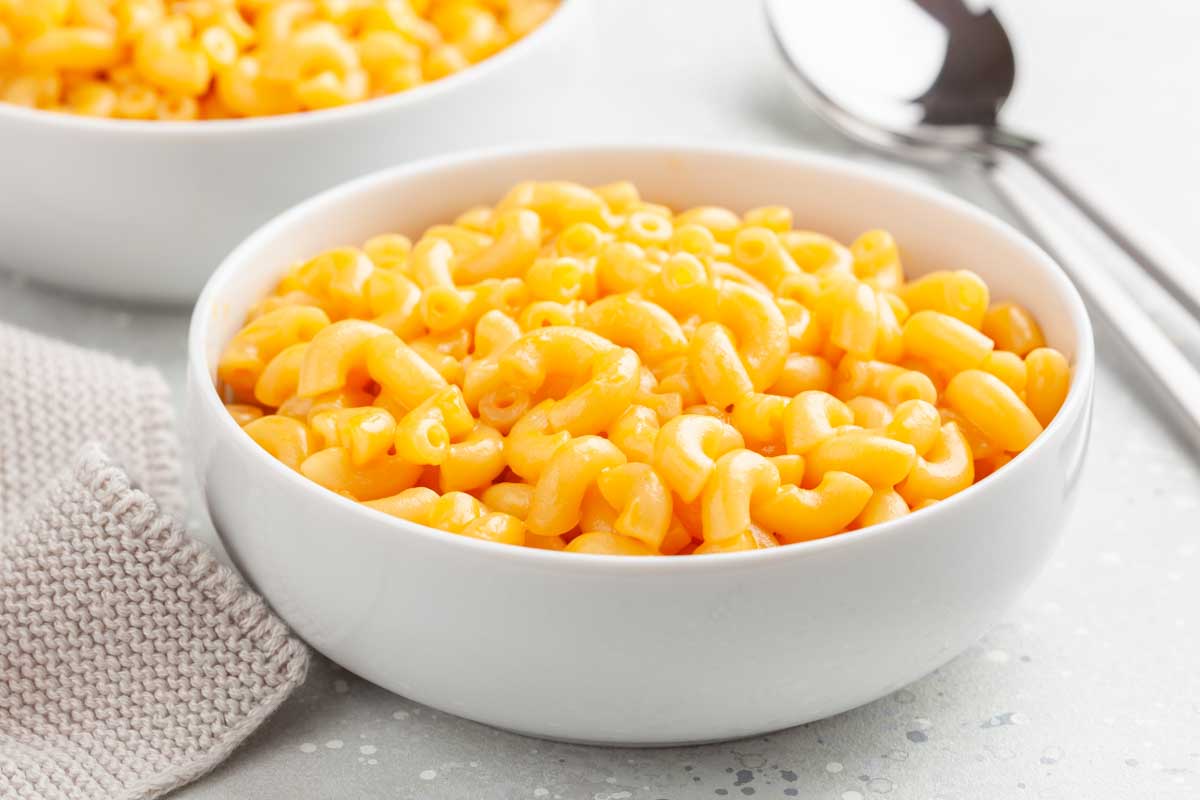
For ultimate pet safety, I recommend consulting with your vet about all the questions you have about your dog eating mac and cheese.
Can Dogs Eat Macaroni And Cheese
Whether you like to make homemade mac n cheese with cream cheese and cottage cheese or you make Kraft mac and cheese, you should not share it with your canine friends.
While small quantities might not hurt most dogs, if they have a gluten intolerance, it could give your pup severe diarrhea.
Cheddar cheese is safe for most dogs to eat, but some dogs are lactose intolerant, so it’s not a good idea to use cheese in the food you share with your dog.
Macaroni and cheese also has a lot of calories so it could make your dog gain weight. It’s better to keep your dog away from foods with high calorie content.
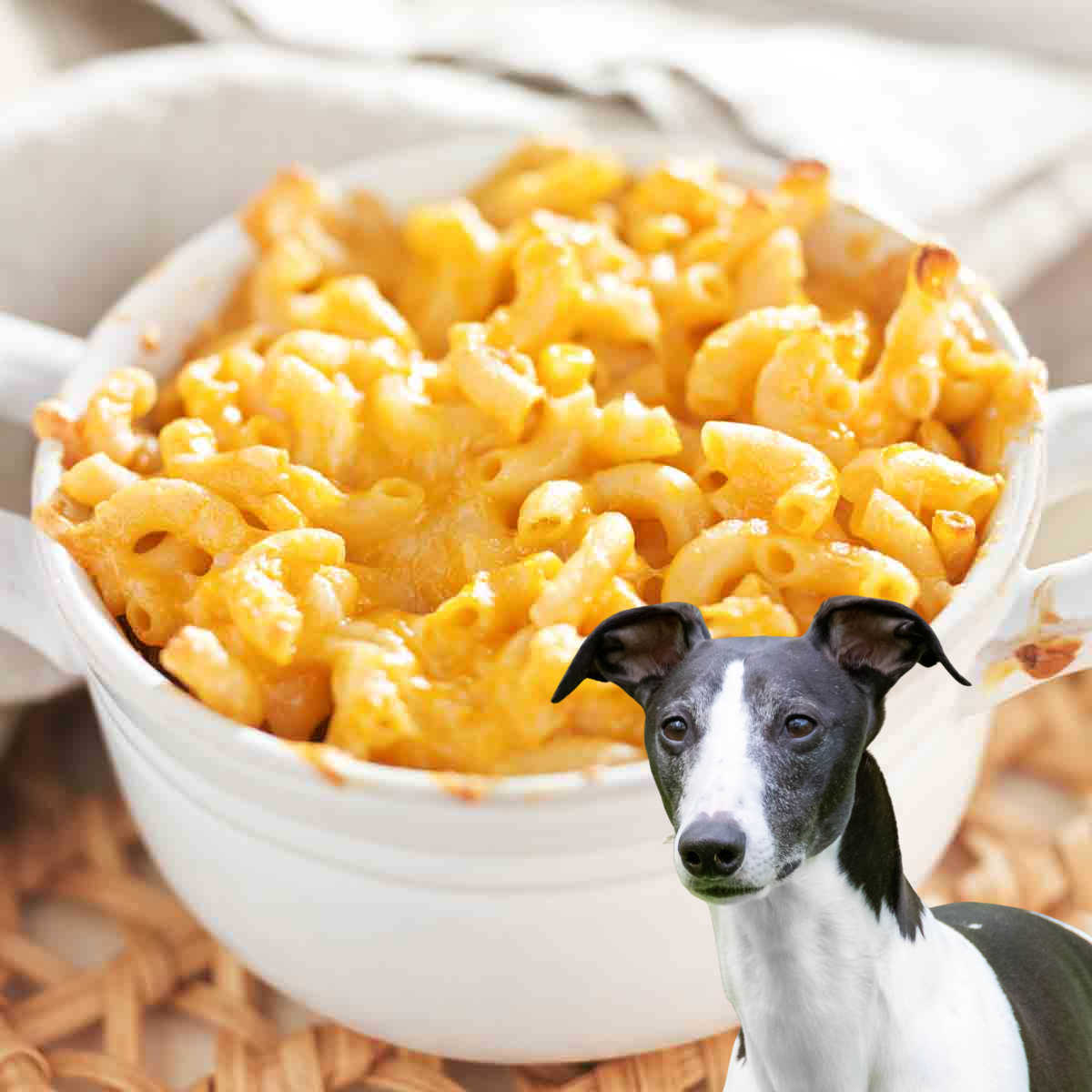
Can Puppies Eat Mac and Cheese
Even though it is a popular food for kids, pet parents should not give mac and cheese to puppies. Their digestive system is not developed enough to handle dairy or wheat gluten.
It could give your small pup some uncomfortable digestive problems like diarrhea. Giving them even a small amount is not a good idea. The primary ingredient is milk, and your puppy could be lactose intolerant.
There are better options than giving your young dog cheese or food that might trigger food allergies.
Until they are older, stick to giving your small dog regular food and a dog treat that is made with safe ingredients.
Can Mac and Cheese Kill Dogs
Even though large quantities of mac and cheese could give your pup digestive issues, it probably won’t kill them.
It’s still not a good idea to give your dog macaroni. As a pet owner, you should know that there are a lot of health issues related to weight gain from a bad diet.
Even if you replace the noodles with spaghetti squash, the cheese could still cause your dog to gain weight.
Is Macaroni and Cheese Bad For Dogs
Most boxed mac and cheese contains artificial ingredients and doesn’t have any nutritional value for dogs. The cheese and ingredients could give your dog an upset stomach.
The wheat flour and artificial colors are unsafe for dogs too. It’s better to refrain from giving your dog any mac and cheese.
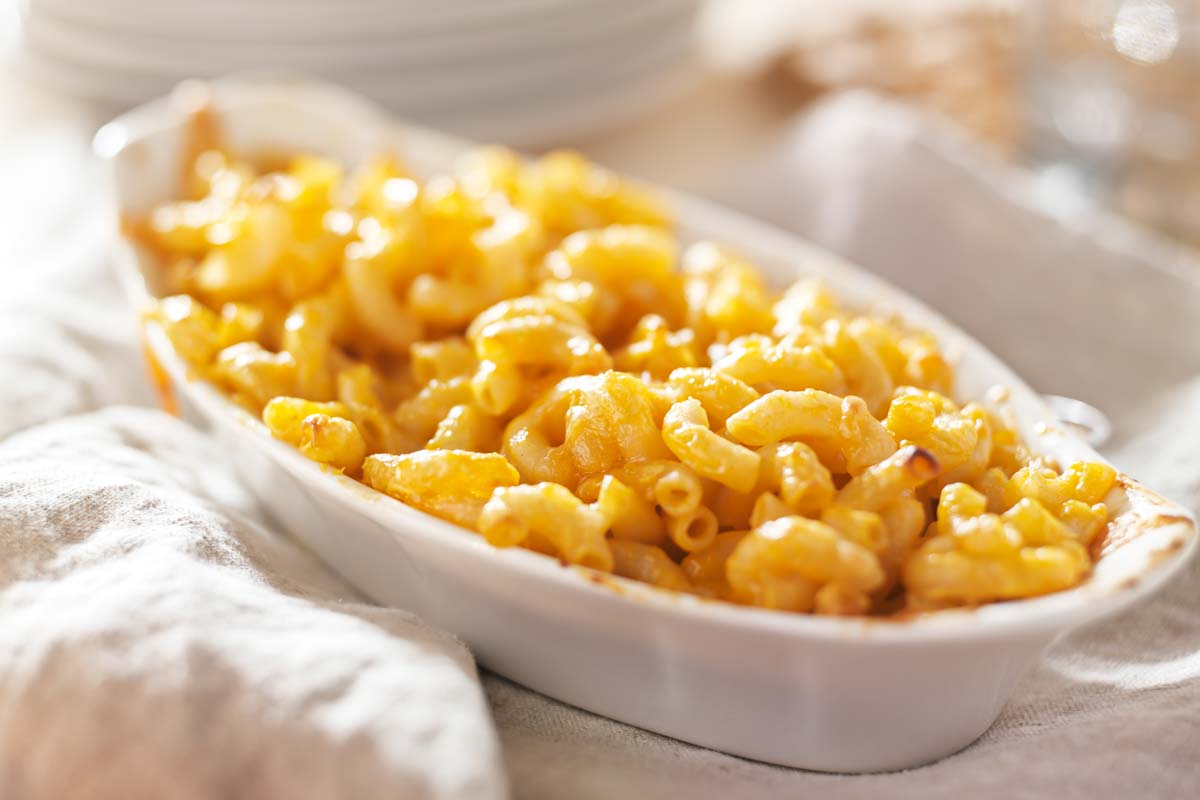
Mac and Cheese Good For Dogs
Maybe you’ve heard that cheese can help build strong bones. Even though it’s a good source of calcium for humans, it’s not the same for your furry friend.
If you don’t know if your dog is lactose intolerant, don’t give them too much cheese at first. Introduce milk products to your pup slowly and see how they react to them. Is cheese safe for dogs? Yes, most dogs can eat cheese without problems.
My Dog Ate Mac and Cheese
First, assess the situation and see if you can figure out how much mac and cheese your dog ate. If your dog already suffers from health problems, call your veterinarian immediately. If you notice signs of allergic reactions (or you don’t know if your dog has a wheat allergy) keep a close eye on them.
Watch for symptoms of gluten allergies. This could include loose stools or mucus in their stool. Let your dog’s veterinarian know if you see those symptoms.
Final Thoughts
No matter which mac and cheese recipes you find online, it’s better not to give your dog any. It’s better to stick to feeding them healthy dog food. Even a little bit might upset your dog’s stomach.
More Dog Food Resources
Here are some more articles about other human foods and whether they are safe for your dog to eat.
- Can Dogs Eat Brie
- Can Dogs Eat Blue Cheese
- Can Dogs Eat Cheez Its
- Can Dogs Eat Cottage Cheese
- Can Dogs Eat Feta Cheese
- Can Dogs Eat Pasta
- Can Dogs Eat Tater Tots
Find lots more articles about what dogs can eat here on Spoiled Hounds!
📌 Pin this to save and share 📌
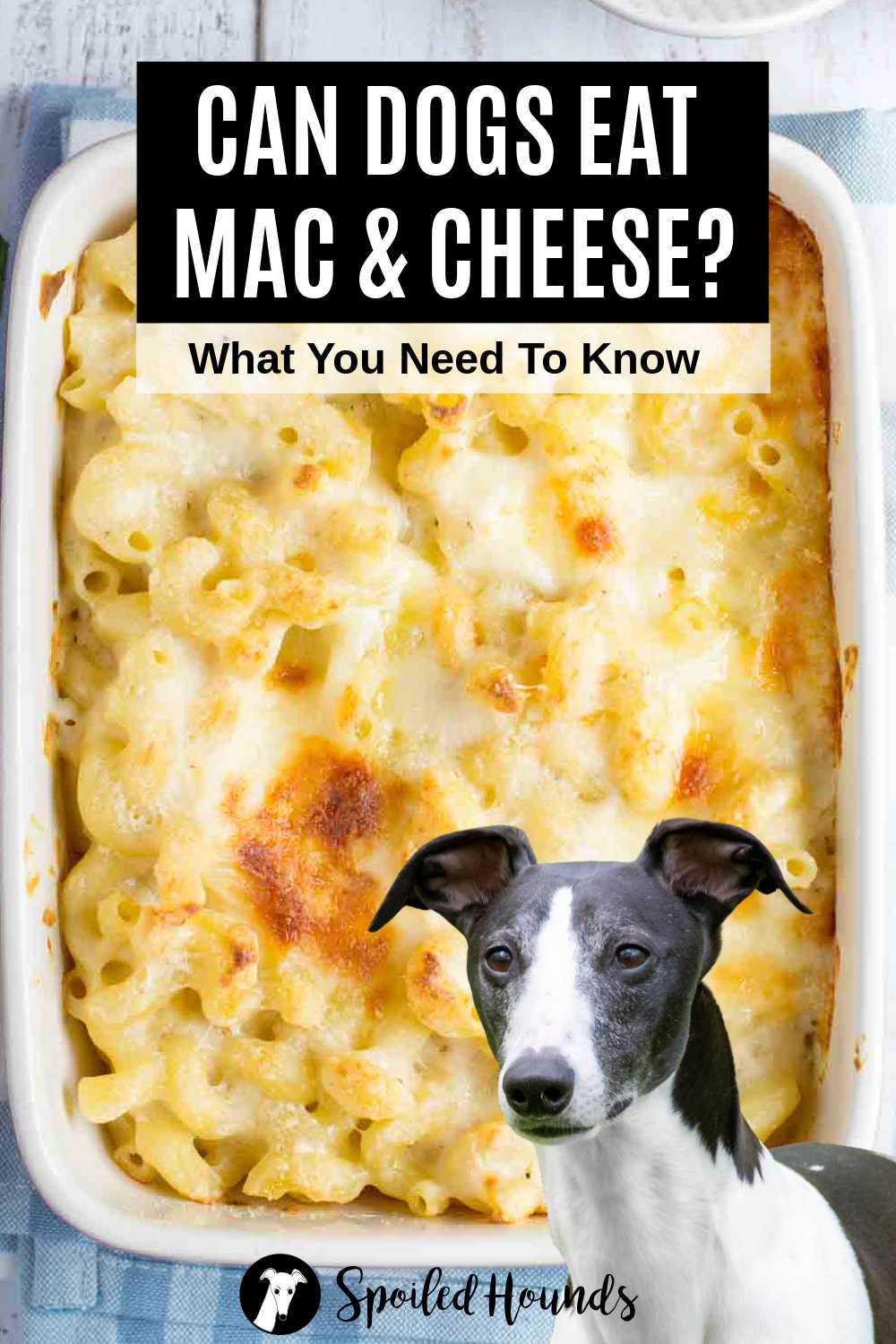
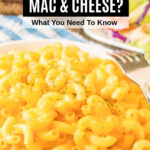
Thank you for the wonderful guidance on foods for furries. Happy Spring